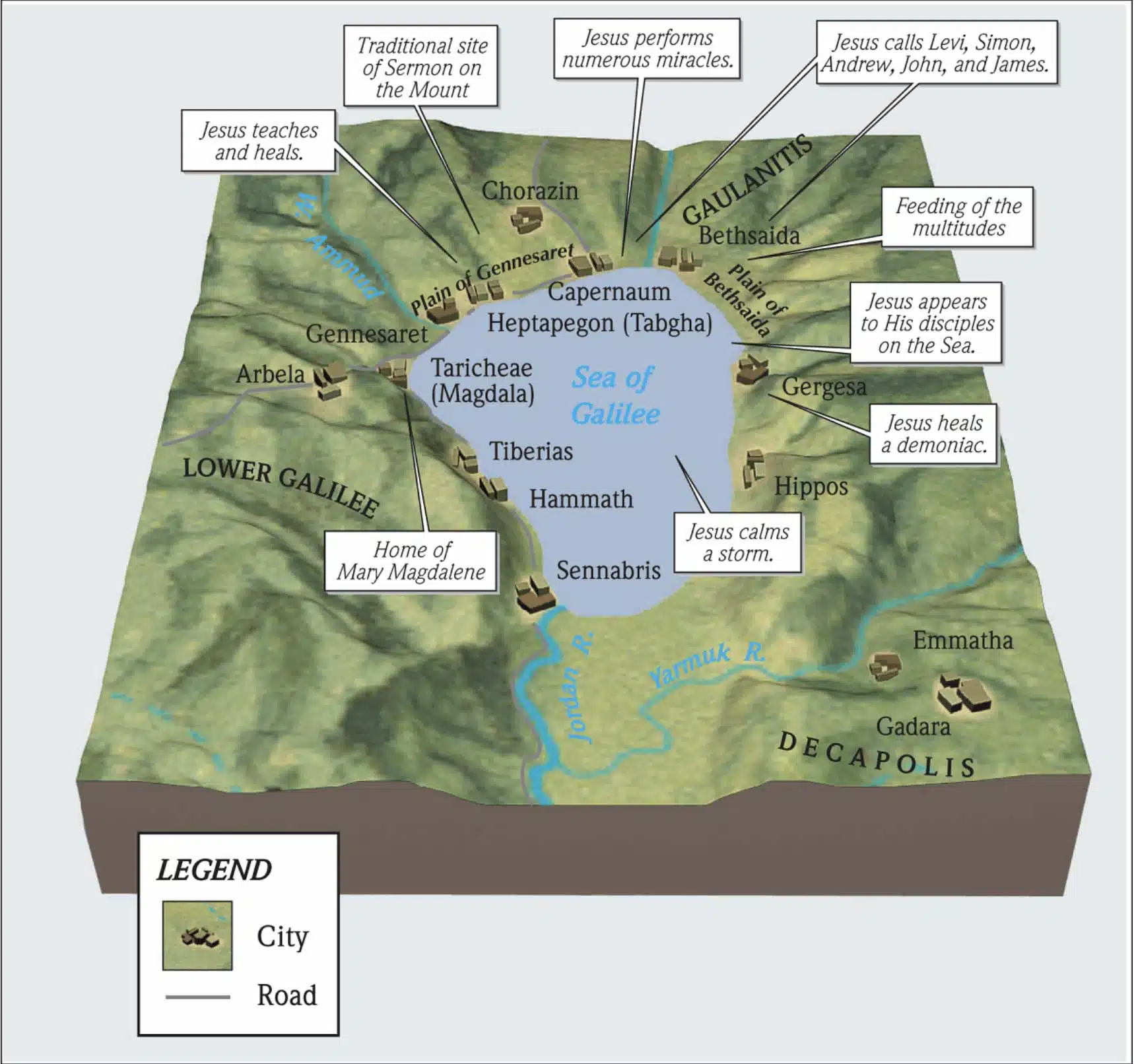After the religious leaders stop debating with Jesus, He begins to address His disciples, as the crowds listen on.
The parallel accounts of this event are found in Mark 12:37b and Luke 20:45.
After Jesus’s series of confrontations with the religious authorities where He spoke parables against them, Matthew notes a new section of material with the simple phrase Then Jesus spoke to the crowds and to His disciples.
What immediately followed was:
- a series of warnings and woes against the Pharisees (Matthew 23:2-36);
- a lament of Jerusalem (Matthew 23:37);
- teachings about Christ’s return, the perilous times His return will take place in, and how to prepare for it (Matthew 24:1-51); and
- three extended parables about His return and the judgment (Matthew 25:1-46).
The later two of these chapters, chapters 24 and 25 are often referred to as the “Olivet Discourse.”
Jesus said these things, not specifically to the Pharisees and Sadducees, but to His disciples and to the listening crowds. Luke 20:45 indicates that His message was directed to His disciples, “while all the people were listening.” Mark says that “the large crowd enjoyed listening to Him” Mark 12:37). In any case, what Jesus said in Matthew 23-25 was said to a friendly or neutral audience rather than a hostile one which was the case for much of the previous two chapters.
Biblical Text
Then Jesus spoke to the crowds and to His disciples,
Check out our other commentaries:
-
Matthew 5:25-26 meaning
Reconciliation is important not just for your brother, but also for someone with whom you have a dispute. Settling a wrong quickly avoids consequences that...... -
Revelation 20:7-10 meaning
After the thousand years of the first resurrection of the dead, Satan is released. The devil and his fellow conspirators are relocated to their final...... -
Galatians 3:19-22 meaning
Since the Law had nothing to do with either the giving or receiving of the promise of God, Paul answers an obvious question: What is...... -
Matthew 6:19-21 meaning
Jesus encourages His disciples to invest their treasures wisely where their value won’t be lost. And He tells them that their hearts will follow their...... -
Deuteronomy 11:8-12 meaning
To encourage the people, Moses contrasts the prosperous land of Canaan — which depends on God for irrigation — with the land of Egypt, a......




